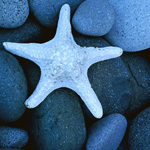
by Laurie Wagner | Jul 30, 2012 | Blog
If you’re like a lot of people, you mean to create a writing practice, but when you make time to sit down and write, you’re not always sure where to begin. You might even have a story idea – something that happened to you that you want to write about – but getting those first words onto the page can be as back breaking as lifting bricks out of a ditch. That’s why I use Wild Writing to get my engine running and get those words out of me and onto the page. It’s the best way I know how to make my way towards what I really want to say. If you’ve taken my Wild Writing classes, you know that I use poetry as a jump off to get us going. I read a poem to the class, and then I pick a line from it that acts like a door that someone has left open and which our imaginations can sneak in through. The access lines are important, and not all poems have the ones that are the easiest for us to walk through. A line like, “my dog likes salmon cakes,” won’t work because it’s too specific. If I don’t have any experience of dogs and salmon cakes there’s no invitation in. So I try to find lines that are more general, but always compelling. Lines that many of us might be able to tumble into. After I give the line we write, pen never leaving the page, writing as fast as we can for 15 minutes, just getting those words out of us. Here’s the...

by Laurie Wagner | Jul 8, 2012 | Blog
This post was inspired by watching a number of my students sink after what they considered a less-than-stellar session of writing. It is dedicated to them and to anyone who makes things: art, stories, pie. It is a note to the part of ourselves that gets frustrated when we don’t create something we like – when we wonder what the hell we were thinking when we picked up that pen or that paintbrush or that pastry dough. This is my take on the creative process, and what it means to humble ourselves to where we are and not judge, because judging is not an accurate or interesting measure of much, except this moment and then the next moment – which is kind of like reporting the weather – which, as we know, is always changing. So much of what I know about this I learned (and continue to learn) on the racquetball court. Here, there are plenty of moments – some excellent and others totally doggy – that could paint a picture about my success or failure as a player. But if I were to hold on to every good and bad shot I make in a game, and judge what kind of player I am based on each shot, I’d be a mess on the court. I would never make it to 15 points. It’s easy to feel great when you’re playing well or writing well, but when you’re not, that’s where the rubber meets the road and you are challenged to practice getting comfortable with discomfort. And it’s odd, but my favorite part of the game lately...




